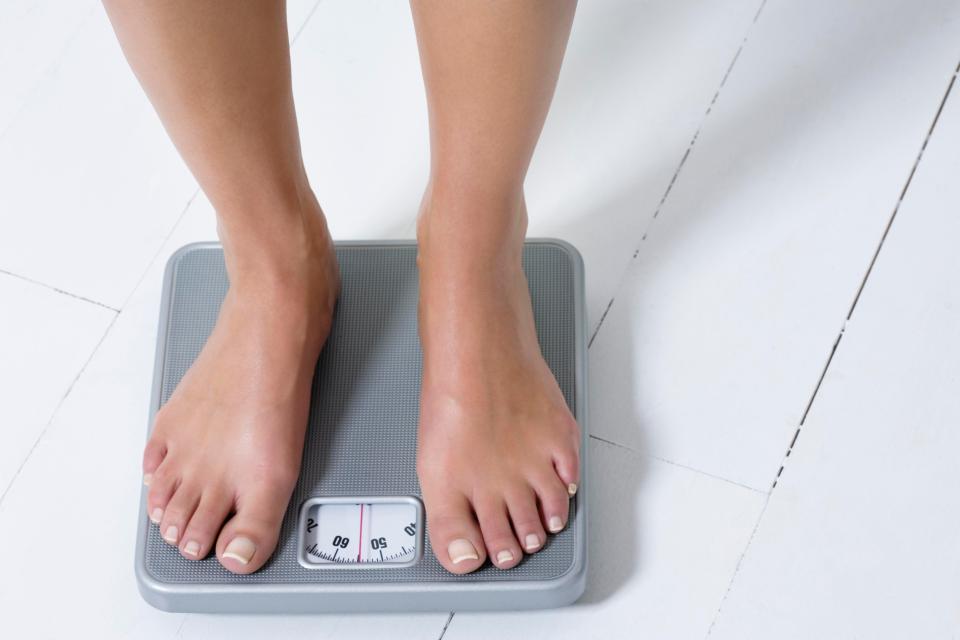Rising number of middle-aged women are ‘battling anorexia and bulimia’, new figures warn
One in 28 women aged 40 to 50 are living with an active eating disorder, a new study has revealed

A RISING number of middle-aged women are battling eating disorders - typically thought of as "teenage illnesses", experts today warned.
One in 28 women aged 40 to 50 are thought to be living with illnesses like anorexia or bulimia.
Experts have warned the health service is failing these women, while leading charity Beat said the figure reflects the calls they are seeing to their helpline - noting 15 per cent of callers are over 40.
The study, published in the journal BMC Medicine, examined more than 5,000 British women.
It revealed 15.3 per cent reported having had an eating disorder at some point in their lives.
Meanwhile, 3.6 per cent said they had an eating disorder in the last year.
But, less than one in three of these women sought help to combat the disorders, the findings show.
Both anorexia and bulimia are typically associated with teenage girls.
But, the eating disorders charity Beat said these stereotypes can be damaging - stopping people who don't fall into the so-called "norm" getting help.
It demonstrates that the rates of eating disorders among middle-age women are higher than it was thought, and that significant proportions of these people are unknown to services – so there is a large unmet need,
Dr Agnes Ayton
The charity's Tom Quinn, said: "Stereotypically, the world sees people with eating disorders as young.
"When we reinforce stereotypes, we also add to the stigma of these serious mental health illnesses and this stigma can prevent individuals coming forward to seek help - a dangerous path to take when the chance of full recovery is vastly improved when treatment is found quickly."
And Dr Agnes Ayton, vice chair of the faculty of eating disorders at the Royal College of Psychiatrists, echoed Mr Quinn's concerns.
"It demonstrates that the rates of eating disorders among middle-age women are higher than it was thought, and that significant proportions of these people are unknown to services - so there is a large unmet need," she said.
"The numbers are surprising, as most of the research has focused on adolescents and younger adults.
"However, they are not entirely unpredictable, as previous population-based studies have also shown that a large proportion of patients with eating disorders don't seek help."
Dr Nadia Micali, a psychiatrist at University College London,who led the new research, said the findings show eating disorders "are not just confined to earlier decades of life".
Related Stories
"Both chronic and new onset disorders are apparent in mid-life," she said.
"Many of the women who took part in this study told us this was the first time they had ever spoken about their eating difficulties, so we need to understand why many women did not seek help.
"It may be that there are some barriers women perceive in healthcare access or a lack of awareness among healthcare professionals."
Researchers interviewed two groups of women - those who reported symptoms of an eating disorder, and an equal number who had never shown signs.
They found an unhappy childhood or parents divorcing or separating increased the risk of bulimia, binge eating and some forms of anorexia.
A history of sexual abuse in childhood, and a fear of social rejection were also linked to all eating disorders.
Dr Micali added: "The early risk factors we assessed were associated with different eating disorders.
"Anorexia, bulimia, binge eating and purging disorder were all associated with childhood unhappiness, and parental separation or divorce during childhood seemed to increase the risk of bulimia, binge eating disorder and atypical anorexia.
"We also found that the death of a carer could increase the likelihood of purging disorder and that sexual abuse during childhood, or a fear of social rejection, was associated with all eating disorders."
Across the UK, an estimated 725,000 people are affected by eating disorders.
Mr Quin, from Beat, added: “Last year, 15 per cent of calls to our Helpline were about someone over the age of 40.
“In the Prime Minister’s speech last week, we were promised the transformation of mental health services, we must now see this across all ages, not just for those under the age of 18.”.
If you need support, or are concerned about a friend or family member, call Beat's helpline on 0345 634 1414 - or for more information
We pay for your stories! Do you have a story for The Sun Online news team? Email us at [email protected] or call 0207 782 4368








